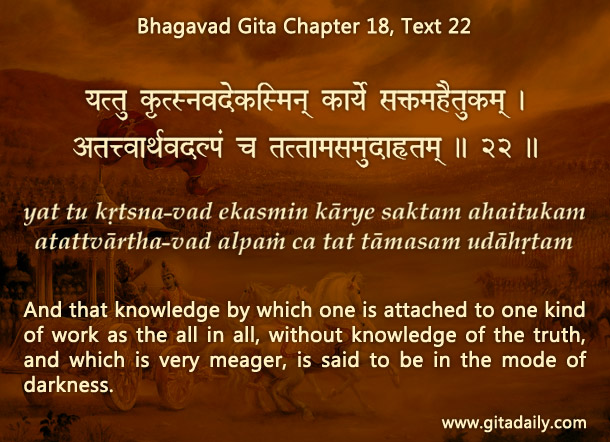Our mind can blind us when it gets infatuated by certain desires and can see only the immediate pleasures available through indulgence, not the consequences of that indulgence.
The Bhagavad-gita (18.38) cautions that sensual pleasures which taste like nectar initially tastes like poison eventually. When our mind makes us blind, it just sees the initial titillation, while blinding us to the eventual tribulation.
Undoubtedly, such forceful attack of desires on us is intermittent, and when we are not being attacked by desires thus, we think that we are safe. However even then we are vulnerable. We remain vulnerable to our biases and prejudices which distort our perception so subtly that we don’t even realize it. We come to realize them only when we interact with people who are from wide varieties of backgrounds and who challenge our stereotypical notion of that background. To the extent we come to the mode of goodness, the Bhagavad-gita (18.22) states that we can see the true equality of all living beings – we learn to see us all as parts of God.
In general, if we pass blanket statements about any broad community of people, then we need to be on guard that such statements may be due to our own color-blindness.
Gita wisdom states that all living beings are infected by three modes of material nature and thus every category of people has a blend of various dispositions. That’s why applying one blanket level to a large category of people is usually and sometimes hugely misleading. The more we equip ourselves with Gita wisdom to look within to note our biases and to look without at people as spiritual beings, to that extent we can go beyond both the worldly desires that sometimes blind us and the worldly preconceptions that sometimes color blind us.
To know more about this verse, please click on the image
Explanation of article:
Podcast:


Leave A Comment